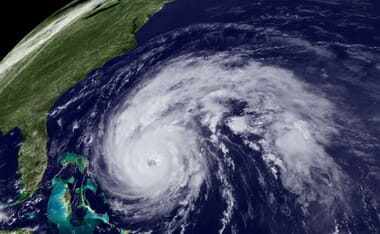In a hilarious bit, Brian Whitman of The Morning Answer impersonates Doug Ose after the breaking news that he would no longer run in the gubernatorial race in California.
Brian Whitman


Ben Shapiro and Brian Whitman Discuss Hurricane Katrina Anniversary
(You have to know a little bit about the furor over Katrina and Bush hatred to get the following.)
I received an email a many years ago noting that because of the Federal Governments response to Katrina in New Orleans… then President Bush showed his dislike for black people. In other words, he is racist.
Following through with that line of thinking then, can we conclude — then — that because Des Moines was flooded and Obama lagged in getting help to the flooded portion of this state… does Obama dislike white people, thus, being racist himself?
Where are the Hollywood celebrities holding telethons asking for help in restoring Iowa and North Dakota and helping the folks affected by the floods? Where is good old Michael Moore?
 Why is the media NOT asking the tough questions about why the federal government hasn’t solved this problem? ….
Why is the media NOT asking the tough questions about why the federal government hasn’t solved this problem? ….
 ….Asking where the FEMA trucks and trailers and food services are?
….Asking where the FEMA trucks and trailers and food services are?
Why isn’t the Federal government moving Iowa people into free hotels in Chicago and Minneapolis ?

When will Spike Lee say that the Federal government blew up the levees that failed in Des Moines?
 Where are Sean Penn, Bono, and the Dixie Chicks?
Where are Sean Penn, Bono, and the Dixie Chicks?

Where are all the looters stealing high-end tennis shoes, cases of beer and television sets?
 When will we hear Governor Chet Culver say that he wants to rebuild a “vanilla” Iowa like Mayor Ray Nagin wanted to rebuild “chocolate” New Orleans… because that’s what God wants? [As Nagin said]
When will we hear Governor Chet Culver say that he wants to rebuild a “vanilla” Iowa like Mayor Ray Nagin wanted to rebuild “chocolate” New Orleans… because that’s what God wants? [As Nagin said]
Where is the hysterical 24/7 media coverage complete with reports of shootings at rescuers, of rapes and murder?
Where are all the people screaming that Barack Obama hates white, rural people? My God, where are Angelina Jolie and Brad Pitt, Oprah, and Ray Coniff Jr?
 How come you will never hear about the Iowa flooding ever again? Where are the gov’t. bail out vouchers? The government debit cards?
How come you will never hear about the Iowa flooding ever again? Where are the gov’t. bail out vouchers? The government debit cards?
`The Morning Answer` (Radio Program-870am) Memorializes a Dictator ~ Chavez
From video description:
Ben, Heidi, and Brian talk about the death of Chavez and the confused reaction by the left and the press. (Posted by: Religio-Political Talk) A very small portion of Celsius 41.11’s opener (http://tinyurl.com/cwhd22p) is inserted after the audio of the NYT’s reporter.
And a small paragraph from The End of Venezuela As I Know It:
Chavez died today…. When I heard the news, these past fourteen years passed by me in an instant. My adolescence, my youth, all that fear, all that disappointment, all those street demonstrations, all those stories, all those lives that were lost in the way not by cancer but by the sound of a trigger. I wrote to my friends, to all those people who accompanied me during all those years when everything was about Chavez. All those people with frustrated dreams and hopes. Everyone who saw in this fourteen years a definite ruin of what we once called home. Pain, that is Hugo Chavez legacy.
Here is some words from the New York Times:
…Dr. Edmundo Chirinos, a psychiatrist who got to know Mr. Chávez as a patient, described him in a profile in The New Yorker in 2001 as “a hyperkinetic and imprudent man, unpunctual, someone who overreacts to criticism, harbors grudges, is politically astute and manipulative, and possesses tremendous stamina, never sleeping more than two or three hours a night.”
Mr. Chávez would delight in angering his critics in rich countries. He heaped praise, for instance, on Ilich Ramírez Sánchez, the Venezuelan terrorist better known as Carlos the Jackal, with whom he corresponded.
“I defend him,” Mr. Chávez said of his friend, who was jailed in France on charges of murdering two French police agents and a Lebanese informer in Paris in 1975. “I don’t care what they say tomorrow in Europe.”
No mentor was more supportive than Mr. Castro, who well understood how important Venezuela’s subsidized oil shipments were to Cuba’s fragile economy. An ally from the start of Mr. Chávez’s presidency in 1999, he offered help in one of Mr. Chávez’s most difficult moments, a coup d’état that removed him from office for 48 hours in April 2002. Mr. Castro telephoned Venezuela’s top military officials, pressing them to assist in returning Mr. Chávez to office.
The collapse of the coup, which received tacit support from the Bush administration, and Mr. Chávez’s swift return to power signaled a shift in his presidency. Seemingly chastened, Mr. Chávez promised compromise and harmony in the future. But instead of reconciliation, his response was retaliation.
He began describing his critics as “golpistas,” or putschists, while recasting his own failed 1992 coup as a patriotic uprising. He purged opponents from the national oil company, expropriated the land of others and imprisoned retired military officials who had dared to stand against him. The country’s political debate became increasingly poisonous, and it took its toll on the country.
Private investors, unhinged over Mr. Chávez’s nationalizations and expropriation threats, halted projects. Hundreds of thousands of scientists, doctors, entrepreneurs and others in the middle class left Venezuela, even as large numbers of immigrants from Haiti, China and Lebanon put down stakes here.
The homicide rate soared under his rule, turning Caracas into one of the world’s most dangerous cities. Armed gangs lorded over prisons, as they did in previous governments, challenging the state’s authority. Simple tasks, like transferring the title of a car, remained nightmarish odysseys eased only by paying bribes to churlish bureaucrats.
Other branches of government often bent to his will. He fired about 19,000 employees of Petróleos de Venezuela, the national oil company, in response to a strike in 2002 and 2003. In 2004, he stripped the Supreme Court of its autonomy. In legislative elections in 2010, his supporters preserved a majority in the National Assembly by gerrymandering.
All the while, Mr. Chávez rewrote the rule book on using the media to enhance his power. With “Aló Presidente” (“Hello, President”), his Sunday television program, he would speak to viewers in his booming voice for hours on end. His government ordered privately controlled television stations to broadcast his speeches. While initially skeptical of social media, he came to embrace Twitter, attracting millions of followers.
He also basked in the comforts allowed him as head of state in a nation with some of the largest oil reserves outside the Middle East. He traveled in a luxurious Airbus A-319. In one jaunt around Venezuela in 2007 with the actor Sean Penn, he roamed the plane regaling foreign journalists with tales from his days as a soldier…
I celebrate with others their happiness of Hugo’s loss.
Communism Fail!